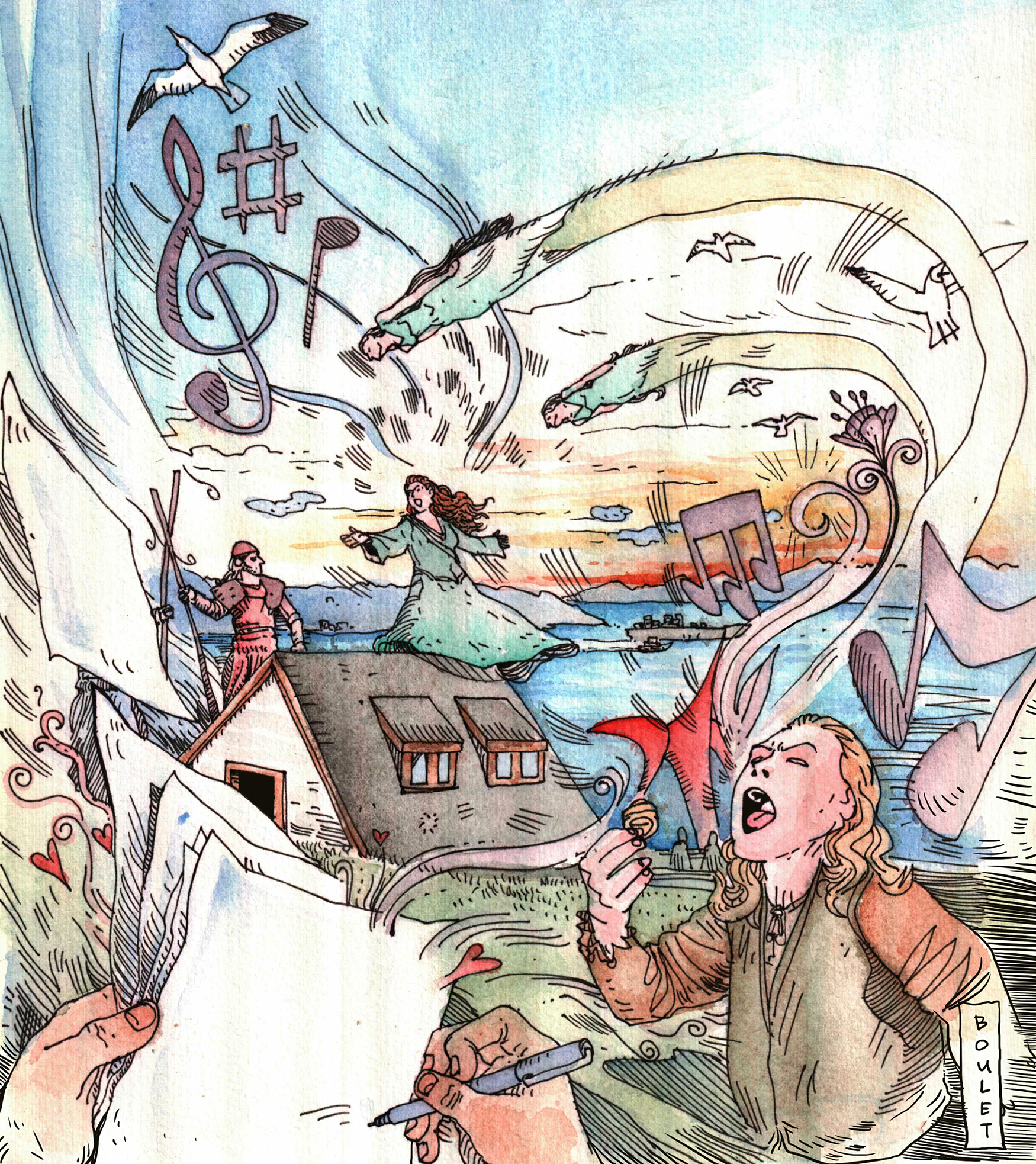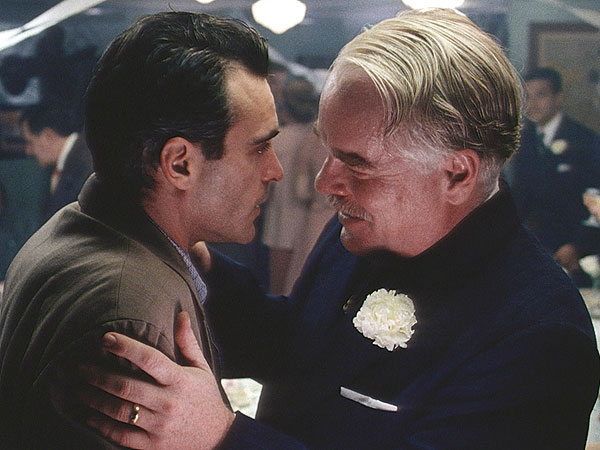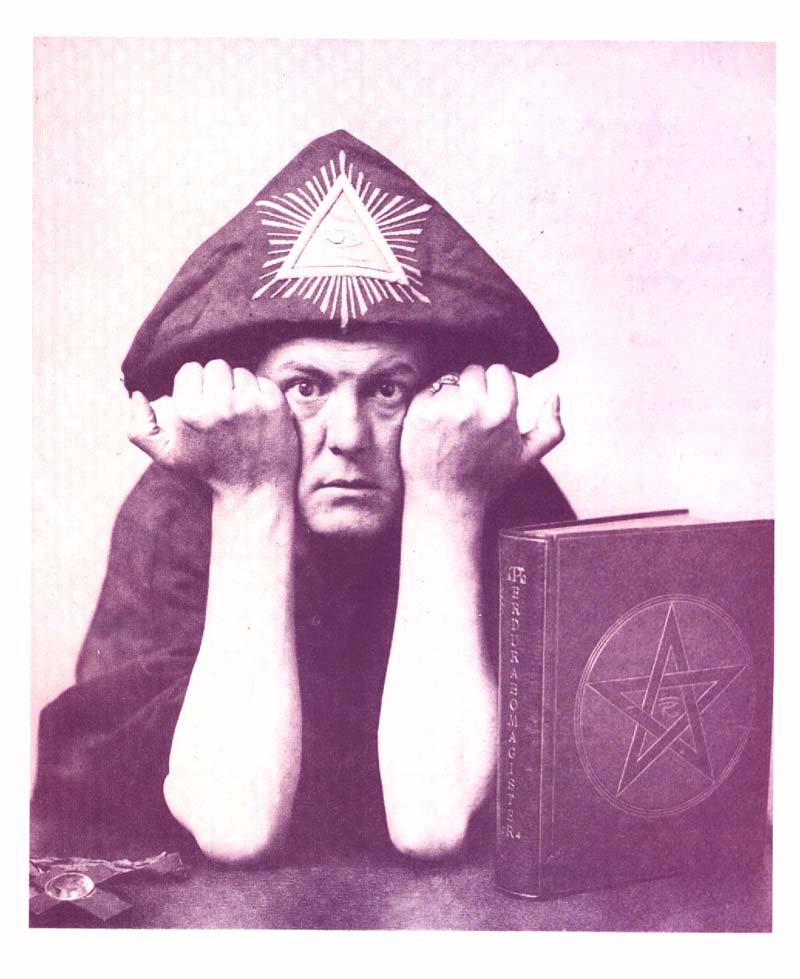WEDNESDAY, MAY 25
[PICK] Perfect Sense 4:30 p.m., Egyptian
SIFF honoree Ewan McGregor previously worked with director David Mackenzie on the 2003 Young Adam, which featured frank sex, frontal male nudity, and a memorable gross-out scene with pouring paint and the trashing of an apartment. Would you be disappointed to know there’s more of the same here? I think not. Perfect Sense might initially appear a parable—like the similar, inferior Blindness, in which the world’s population mysteriously loses its sight. That punitive plague was because of our lack of social connection; blindness then brought us closer together, restored community. Here, a Glasgow chef (McGregor) and epidemiologist (former Bond girl Eva Green) are among those afflicted by a mysterious syndrome that begins with the loss of smell. One down, four to go. As the world turns to hell, however, a relationship gradually forms between the cook who can’t commit and the doc afraid to love again. Sounds trite, but the film maintains an unlikely tone between black comedy and global tragedy. There are no lessons. As if by some Darwinian process of coping, the central duo and their city just keep adapting to diminished faculties. In one funny scene, after taste has gone, the chef’s restaurant receives a rave review for the crackly sonic textures of its food. (Extra bonus: McGregor’s old Trainspotting buddy Ewen Bremner has a comic supporting role.) BRIAN MILLER
[PICK] Donor 6 p.m., Renton
Remember—not that you saw it—the horror flick Turistas, where spoiled, dumb-ass Americans had their kidneys cut out for black-market organ transplants? Made in the Philippines by native director Mark Meily, Donor is the more plausible, neorealist version of that same fear. Heroine Lizette dreams of a life abroad—perhaps to be a hotel maid in Dubai. But for the right paperwork and visa, she needs cash. It’s only one kidney, right? She’s not even a drinker, unlike her layabout gambler boyfriend Danny, who mooches off her incessantly. And she desperately wants to escape the video stall where a foreigner’s request for The 400 Blows is mistaken for a porno. Meily trained in Paris as a director of commercials, and his bicultural perspective here recalls Maria Full of Grace. (Again, the female body is a vessel of trade.) Lizette (Meryll Soriano) knows she’s doing something wrong, knows she’s being exploited by larger economic forces, but what choice has she? Filipino law requires an arranged marriage to donate to a family member, yet her Arab “husband” Jasim is weak and pitiful, not to be despised (unlike gangsta wannabe Danny back home). Their sad courthouse ceremony, sealed with a courteous kiss, is a product of globalization. Under different circumstances, you realize, their vows might’ve been sincere. But they’re forced to be buyer and seller, not man and wife. BRIAN MILLER (Also: Admiral, 6:30 p.m. Sat., June 4 and Harvard Exit, 4:30 p.m. Tues., June 7.)
A Screaming Man 6:30 p.m., Admiral
At 50, Chadian writer/director Mahamat-Saleh Haroun is old enough to have seen his homeland sink into carnage more than once. A Screaming Man is Haroun’s war film—but, a man of minimalist proclivities, he speaks of national tragedy through the story of a swimming pool. Father Adam (Youssouf Djaoro) and son Abdel (Diouc Koma) are a team of pool attendants at a N’Djamena resort hotel. A former swimming medalist whom everyone still calls “champion,” Adam is an employee of 30 years’ standing, but corporate restructuring moves him to an undignified new post (shades of Murnau’s The Last Laugh), leaving 20-year-old Abdel alone in the water. Adam recovers his job only when Abdel is forcibly inducted into the army, an event his father is ambiguously complicit in. There’s no gunplay here; war is an ever-nearer offscreen horror, its first stirring coming through Adam’s transistor radio, then a passing helicopter. A Screaming Man‘s story of economically enforced generational rivalry reflects the division—or rather, lack of division—of the burden of war between fathers and sons. The characterizations never comfortably accommodate Haroun’s pat metaphor, though his stoic visual storytelling has an oblique gravity, suggesting a slightly altered meaning in each surveying shot of the poolside patio. NICK PINKERTON (Also: Pacific Place, 10 a.m. Sun., May 29.)
THURSDAY, MAY 26
Backyard 4 p.m., Neptune
Árni Sveinsson’s well-intentioned documentary begins with the bright idea of getting as many Reykjavík bands as possible to play in his backyard. It would have worked better as a straight concert film, without the extensive setup preceding the music. Hearing and watching some of Iceland’s indie establishment—from fey folk and pop to screamo—is enjoyable. Reading subtitles about who’s going to bring the drum kit and who’s going to bake the snacks is not. Neither is reading still more subtitles about how a band called Mùm got its moniker. But patient and/or sentimental rock fans who get through the minutiae will definitely find something to love in sets from the likes of FM Belfast, Borko, and Reykjavík! CHRIS KORNELIS (Also: Admiral: 8:30 p.m. Sun., May 29.)
[PICK] Boy 6:30 p.m., Renton
In New Zealand writer/director Taika Waititi’s Boy, set in 1984, the title character is obsessed with Michael Jackson, whose Thriller album is in the midst of its run as a global phenomenon. Poor and being raised by his elderly grandmother alongside his younger brother and a houseful of cousins, Boy (James Rolleston) retreats into a world of fantasy that spills over into his real life and allows him to see his screw-up convict dad as a larger-than-life hero. The first act is filled with funny riffs on ’80s pop culture, mercifully free of the cloying irony deployed by so many American films that draw from the same well. As the scales fall from Boy’s eyes, the film glides into a register of heartbreak, powerfully underscoring the attraction of, and need for, escapist fare. ERNEST HARDY (Also: Neptune, 6:30 p.m. Sat., June 4 and 4:30 p.m. Mon., June 6.)
[PICK] An African Election 7 p.m., Harvard Exit
As the popular uprisings of the so-called “Arab Spring” continue to oust despots and autocracies across the Middle East, An African Election serves as a timely and poignant chronicle of a fledgling democracy’s attempt to peacefully and legitimately elect a new president. Documentary directors Jarreth and Kevin Merz do an admirable job depicting the political drama that unfolded in Ghana in 2008, making the most of near-unfettered access to the two leading candidates. The film makes it clear that the eventual winner is perhaps less important than the nature of the contest. Ghana is one of the continent’s most stable nations, but whenever power changes hands in this part of the globe, the potential for conflict looms large. (Just ask Ivory Coast, Ghana’s western neighbor, whose 2010 election descended into civil war.) Here, even after a runoff, riots, and, eventually, regime change, the country’s myriad social problems still remain. As one interviewee says, “If every four years you go to the polling station . . . and people still suffer poverty, ignorance, and disease, democracy is absolutely meaningless.” KEEGAN HAMILtON (Also: 4:30 p.m. Fri., May 27.)
Paper Birds 8:30 p.m., Renton
Set in the period after the Spanish Civil War, Emilio Aragón’s Paper Birds has all the right ingredients for a compelling drama: death, war, comedy, love, loss, and regret. Yet those elements fail to elicit much emotional connection. At first, vaudeville performer Jorge has it all—a beautiful wife and a handsome young son; his job, with stage partner Enrique, is to make people laugh with their silly jokes and dancing. Well, you know that won’t last long. A year later, for mysterious reasons, Jorge is no longer the happy-go-lucky clown. Bitter and depressed, he meets Enrique in Madrid, where they add orphan lad Miguel to their act, resulting in a cheerful montage of vaudeville training and improvised-family jollity. In another abrupt shift in tone, Paper Birds then progresses like a Spanish version of Inglourious Basterds—minus the revenge killings, suspense, A+ screenplay, and wit. Amid the incoherence, young Miguel (Roger Príncep) supplies most of the humor and charm. But just when things finally slow down for some sort of dramatic resolution, offering lessons on family and humoring old people, the jarring A Beautiful Mind sign-off loses you again. JOE WILLIAMS (Also: Pacific Place, 6:30 p.m. Sat., May 28 and 12:30 p.m. Sun., May 29.)
[PICK] Fathers & Sons 9:30 p.m., Harvard Exit
At base, Carl Bessai’s comic mockumentary is an argument about free will: Are you doomed to become your dad? In the four plot lines, a man meets his father for the first time at his mother’s funeral; a self-made businessman, suddenly in financial trouble, is confounded by his jazz-pianist father’s lack of ambition; four clashing sons dispute their father’s will; and a straitlaced preppy type struggles to accept the fluttery gay drama-queen choreographer who accidentally sired him one long-ago drunken night. (One family is Indian, one Jewish, and one black—does one say African-Canadian?—and I’ll leave you to guess who is what.) A couple of the resolutions are a bit too cute. Yet overall, the tone stays dry and not too sitcommy—and the film is the funnier for it. GAVIN BORCHERT (Also: Admiral: 1 p.m. Sat., May 28.)
FRIDAY, MAY 27
[PICK] Simple Simon 11 a.m., Pacific Place
Sweden’s foreign-language Oscar submission (sorry, it didn’t make the final five), Simple Simon is everything you loved about The Science of Sleep and love about the BBC series Skins, but devoid of everything that seemed so nauseatingly quirky about Dear Lemon Lima at SIFF last year. Director Andreas Öhman has conjured something special: an art-house film with masterfully constructed characters, a whimsical soundtrack (including Lykke Li’s “Tonight,” Tough Alliance’s “First Class Riot,” and Lemon Jelly’s “Space Walk”), and a biting screenplay that doesn’t dare trivialize its theme of mental disability. Eighteen-year-old Simon (Bill Skarsgård, of the famous Swedish acting clan) has Asperger’s syndrome, loves space, and hates change. The story blasts off when his brother’s girlfriend leaves him, and Simon sets himself the challenge of finding brother Sam a new girlfriend in a humorously by-the-book fashion. COLIN GORENSTEIN (Also: Everett, 6 p.m. Mon., May 30 and SIFF Cinema, 7 p.m. Wed., June 1.)
Summer Coda 6:30 p.m., Everett
In many ways, Summer Coda is about what you’d expect of a first-time feature from a director, Richard Gray, who cut his teeth as a Project Greenlight entrant. Which is to say it’s a by-the-numbers, meet-cute love story with a tragic speed bump you can spot coming a mile away. But Gray has a charmingly authentic knack for pacing (leisurely) and location (rural Australia), which elevates his film beyond also-ran status. He also makes a keen decision in the casting of Rachael Taylor as the America-raised daughter coming home to bury her prick of a runaway pa. As a hitchhiking violinist, Taylor projects a strength onscreen that mirrors her turn in the true-life Napa Valley wine thriller (you read that right) Bottle Shock, seen at SIFF three years ago. We like her vintage. MIKE SEELY (Also: Neptune, 7 p.m. Sun., May 29 and 11 a.m. Mon., May 30.)
Karate-Robo Zaborgar Midnight, Egyptian
The place is urban Japan, the time unspecified. Evil organization Sigma, led by the sinister Dr. Akunomiya and abetted by his sidekicks Baron Eyepatch and King Africa, are attempting to build a giant robot called the Jumbo Mecha that will destroy the country! To stop them, secret policeman Daimon has two powerful weapons on his side: a black belt in karate (hence the deadly “Flying Dragon Triple Kick”), and his robot Zaborgar, which can shoot bullets out of its mouth and hurl blade-sharp boomerangs. Directed by Noboru Iguchi (whose Robogeisha played SIFF last year), Karate-Robo Zaborgar is essentially a bromance between man and robot. Zaborgar was created by Daimon’s father, who invented Daimonium, “a substance that changes anything into robots.” Crisis comes when young Daimon falls for the wicked Miss Borg, a Sigma cyborg sporting antennae and a pointy metallic bra. (Of course bombs shoot out of it—do you even have to ask?) After a big lurch forward in time, with the cops now reduced to a rainbow-clad League of Smiles, our fallen hero seeks to reunite with the ‘bot buddy he betrayed. Can the two return to their former glory and defeat Sigma once and for all? If that question doesn’t interest you, note that the action finale includes a wheelchair launched into flight by a lit fart and a karate-chopping fight on a giant pair of robot breasts. ERIN K. THOMPSON (Also: Admiral, 8:30 p.m. Mon., May 30 and Neptune, 9:30 p.m. Wed., June 1.)
SATURDAY, MAY 28
[PICK] Kinshasa Symphony 3:30 p.m., Everett
The title describes both the subject and, to a certain extent, the form of Claus Wischmann and Martin Baer’s doc, a spacious, lyrical meditation on daily life in the impoverished capital of the Democratic Republic of the Congo. Specifically, it’s about the world’s most improbable orchestra and chorus: a volunteer collective of about 100 musicians who bring Handel, Verdi, and Orff to huge and delighted audiences just because they love to. The Orchestre Symphonique Kimbanguiste is pretty good, considering what they’re up against: the flute player is a single mother looking for an affordable place to live; one violist also runs his own barbershop, and is in charge of jury-rigging lighting for whatever warehouse or vacant lot the orchestra can find to rehearse in. The conductor, an ex-pilot, pushes them hard—most challengingly, through the difficult but stirring finale of Beethoven’s Ninth. What’s most gratifying about this film is that there’s neither any special pleading for classical music (oh, look how wonderful it is they’ve risen to the level of these transcendent European masterworks!), nor is it apologized for. Considering the ongoing strength-sapping debate over what role classical music can and should play in American culture, it’s a thrill to see people who, even in straitened circumstances, simply find it worth the effort. The film’s a rebuke to those who fret over classical music’s “relevance.” It seems that Beethoven certainly can be relevant to anyone who hasn’t been told otherwise. GAVIN BORCHERT (Also: SIFF Cinema, 4:30 p.m. Wed., June 1 and Neptune, 7 p.m. Tues., June 7.)
The Interrupters 6 p.m., Harvard Exit
In Steve James’ signature documentary Hoop Dreams, he followed two promising teen basketball players growing up in inner-city Chicago for the better part of a decade, sparing very few details in a nearly three-hour film. And basketball is a fast-paced sport. James’ new The Interrupters is a two-and-a-half-hour doc about a Chicago anti-violence nonprofit largely comprising former criminals. It sounds about as appetizing as a plate of raw broccoli, and for half the film it is. James methodically introduces too many characters to keep track of and dutifully follows them through their daily paces. Then, just as you’re ready to doze off, the focus narrows. The remaining “violence interrupters” and the hellions they’re seeking to rehabilitate become exponentially more compelling, especially a hilariously brash tough named Flamo who’s just been released from prison and seems to be doing his darndest to get sent back. It also helps that the nonprofit James has chosen to focus on is not your typical white, liberal pack of do-gooders hesitant to roll up their sleeves. Rather, the film’s protagonists often intervene in violent situations as they’re happening. In his way, James is documentary filmmaking’s answer to John McPhee, the master at spinning narrative tedium into silk. MIKE SEELY (Also: 12:30 p.m. Sun., May 29.)
Saigon Electric 7:15 p.m., Neptune
Mai, a sheltered ribbon dancer, forsakes her home in the country for the possibility of being accepted into Vietnam’s national dance academy. After flubbing her audition, she stumbles upon a community of hip-hop street dancers with high goals of their own: to beat a rival crew, three-time national champs, in a coming showdown. Are there complications? Of course there are: romance, lack of funds, and greedy real-estate developers who threaten their community center. Like a Vietnamese version of Step Up, with just as much attitude, the frankly inspirational and youth-oriented Saigon Electric features a flurry of dancers adorned in primary colors. The boys twirl on their heads like dreidels; the girls pump their bodies like Shake Weights. When the two crews face off, the dance routines resemble animal threat displays, as each squad attempts to intimidate the other with muscular gyrations. I smell a Hollywood remake already. KRISTY HAMILTON (Also: Pacific Place, 3 p.m. Mon., May 30 and Everett, 6:30 p.m. Wed., June 1.)
[PICK] On Tour 9 p.m., Admiral
Director Mathieu Amalric—surely first in line for the lead if France ever makes a Steve Buscemi biopic—plays Joachim, the booker for an American burlesque troupe touring the French provinces in this dramedy. The troupe’s five brassy, flamboyant women and one man (he strips off his 18th-century costume to the song “Louie, Louie”—get it? as in XIV?) are all actual burlesque stars. Accordingly, On Tour grants them generous, almost documentary-like screen time for their various acts. And as it turns out, they’re much more fun to spend time with than the hard-to-like Joachim. (For unclear reasons having to do with his prior, contentious career in French TV, he just seems to drive around arguing with people.) Exemplars of “the new burlesque” (“The man doesn’t control it anymore,” the show’s smoldering pianist asserts), the ladies’ bawdy confidence makes French seaside towns, posh hotels, and all-glass Côte d’Azur beach houses seem even more glamorous than they already are. By the end of the movie, I wanted to run off and join the tour. GAVIN BORCHERT (Also: Neptune, 9:30 p.m. Thurs., June 9 and 3:30 p.m. Sat., June 11.)
White Irish Drinkers 9:30 p.m., Harvard Exit
Of all the places for Animal House‘s Karen Allen and Peter Riegert—the lovers interrupted by Donald Sutherland’s pot-smoking prof—to reunite onscreen, a 1970s working-class Brooklyn coming-of-age drama helmed by John Gray (a creator of TV’s Ghost Whisperer) is pretty random. Riegert plays a cinema owner who books the Rolling Stones in an effort to pay off a mob debt, while Allen portrays an abused wife who’s the mother of Drinkers‘ 18-year-old protagonist, Brian (Nick Thurston). He’s a sweet, artsy kid who has no desire to follow his older brother Danny (Geoffrey Wigdor) into a life of petty crime. Meanwhile, Brian’s boyhood friends, from whom the film takes its title, gravitate toward civil-service jobs and mock his collegiate aspirations. While Wigdor’s performance is distractingly ham-fisted and the script too all-encompassing, Stephen Lang—the scar-faced villain in Avatar—is appropriately menacing as Brian’s brutal dad. And every moment when Allen and the preternaturally genuine Thurston are onscreen is one where Drinkers transcends its shortcomings. MIKE SEELY (Also: 4 p.m. Sun., May 29.)
SUNDAY, MAY 29
Surrogate Valentine 9:30 p.m., Harvard Exit
When moderately successful, sad-sack musician Goh (singer/songwriter Goh Nakamura) agrees to help a filmmaker friend by teaching clueless actor Danny (Chadd Stoops) how to play guitar, he sees it as an opportunity to earn some much-needed cash. What ensues in Surrogate Valentine is an awkward road-trip buddy comedy whose main purpose seems to be showcasing Goh’s talents—he co-wrote the script with director Dave Boyle and scored the film. It takes Nakamura and Stoops, a Jim Carrey look-alike and a homeless man’s Will Arnett, nearly two-thirds of the 75-minute film to develop any sort of comedic chemistry. And by the time they do, the focus has changed to Goh’s attempts to rekindle a relationship with his high-school flame Rachel (Lynn Chen, whose sweet, even-tempered performance is by far the film’s best). Shot in black-and-white in Seattle, San Francisco, and L.A., Surrogate Valentine emphasizes those shifting locales. Scenes that begin indoors abruptly move outside, making the regional touches—Gas Works Park or the San Fran skyline, to name two of many—seem forced and contrived. Nakamura and Stoops’ constant back-and-forth travels on I-5 are an appropriate metaphor for the film as a whole. Without the right teacher, guitar lessons can be a drag; without the right direction, a lighthearted indie comedy can seem as endless as the open road. ANDREW GOSPE (Also: Admiral, 3:30 p.m. Mon., May 30.)
MONDAY, MAY 30
[PICK] Seattle Stories 11 a.m., SIFF Cinema
Short films are programmed for the whole Memorial Day weekend at SIFF Cinema. There are too many to list, some of them good. Among this package of local efforts, Timothy Watkins’ ’70s noir Photo Booth is the clear standout. It’s an 18-minute condensation of every half-remembered TV movie from the Nixon era: big cars, wide lapels, wah-wah guitar. and Fender Rhodes piano (the score, perfect, is by Eric Goetz). Cinematographer Benjamin Kasulke and Watkins have clearly studied all those old Quinn Martin cop shows, but they treat the material straight—not like Spike Jonze’s “Sabotage” video for the Beastie Boys. A naive writer saves a menaced woman from some goons at Seattle Center. They hide in a photo booth, hot sex follows, then someone turns up dead. Our hero’s a suspect, and he asks a gal-pal reporter to help clear his name. There are absolutely no surprises in what follows—save for the absence of irony. Like an actual photo booth (if you can find one today), Photo Booth fast-freezes the essence of a time you didn’t know you missed. And now it’s gone. BRIAN MILLER
[PICK] A Cat in Paris 1 p.m., Everett
First be warned: This animated French tale about a cat burglar and his companion in crime, a cat, has been dubbed into English. Meaning English English—Brits who adopt a variety of comic vocal inflections (including one French accent—go figure). It makes no sense; the film is not called A Cat in London. Now be delighted: A Cat in Paris is a gem, a treat not to be missed by children or their parents (or animation-loving adults without kids). The graphic style of Jean-Loup Felicioli and Alain Gagnol is crisp, flat, and bright, their characters rendered with linework recalling the Matisse and Picasso of ’30s Paris. There are even traces of Tintin, and a simple comic-book plot to suit. Her father recently murdered, her policewoman mother obsessed with the case, lonely little Zoe has an affectionate pet cat named Dino. When she goes to bed at night, Dino bounds across the moonlit rooftops, leading the honorable, rubbery-armed burglar Nico to the loot. One such outing leads to a nest of gangsters—more comic than truly scary for kids—connected with the death of Zoe’s father. But no more plot. The almond eyes, the sailor pants and tiny feet, the sun-washed checkerboard kitchen floors, the soundtrack strains of Billie and Django—all create a storybook Paris of the imagination, of the artist’s easel. If there’s any justice, A Cat in Paris will get U.S. distribution; and if that means new American dubbing, fine. A new set of accents won’t diminish its charm. BRIAN MILLER (Also: Kirkland Performance Center, 1 p.m. Sun., June 5 and Egyptian, 11 a.m. Sat., June 11.)
Win/Win 6:30 p.m., Egyptian
No, not the wrestling movie with Paul Giamatti. Even after the Oscar-winning documentary Inside Job and Oliver Stone’s unpersuasive Wall Street: Money Never Sleeps, filmmakers are struggling with how to depict the global financial crisis. The Dutch-made Win/Win takes a different approach—all micro, no macro. Aimless young quant Ivan (Oscar Van Rompay) lucks his way onto the trading floor of an Amsterdam brokerage. He only loves numbers, not their consequences. His favorite game, with an Arab grocer, is to mentally calculate each tab before the cash register tally arrives. Once promoted, however, such contests have less meaning. He crushes on the company receptionist, befriends a shy Asian co-worker, and gradually begins to lose his marbles. The more money he makes for the firm, the unhappier he is. Like an albino salamander, the gangly, balding Van Rompay is a marvel of mental contortion made manifest. He has no charm, no smooth words, only a penchant for sticking equations (scribbled on Post-It notes) on the lavatory walls. He pulls on his cigarettes like a panda surprised at the taste of bamboo. And when he tries to resist the system, his muttered “Down, down, down” registers not as a lament, but as a hopeful prayer. BRIAN MILLER (Also: Neptune, 4:30 p.m. Wed., June 1 and Kirkland Performance Center, 7 p.m. Fri., June 10.)








